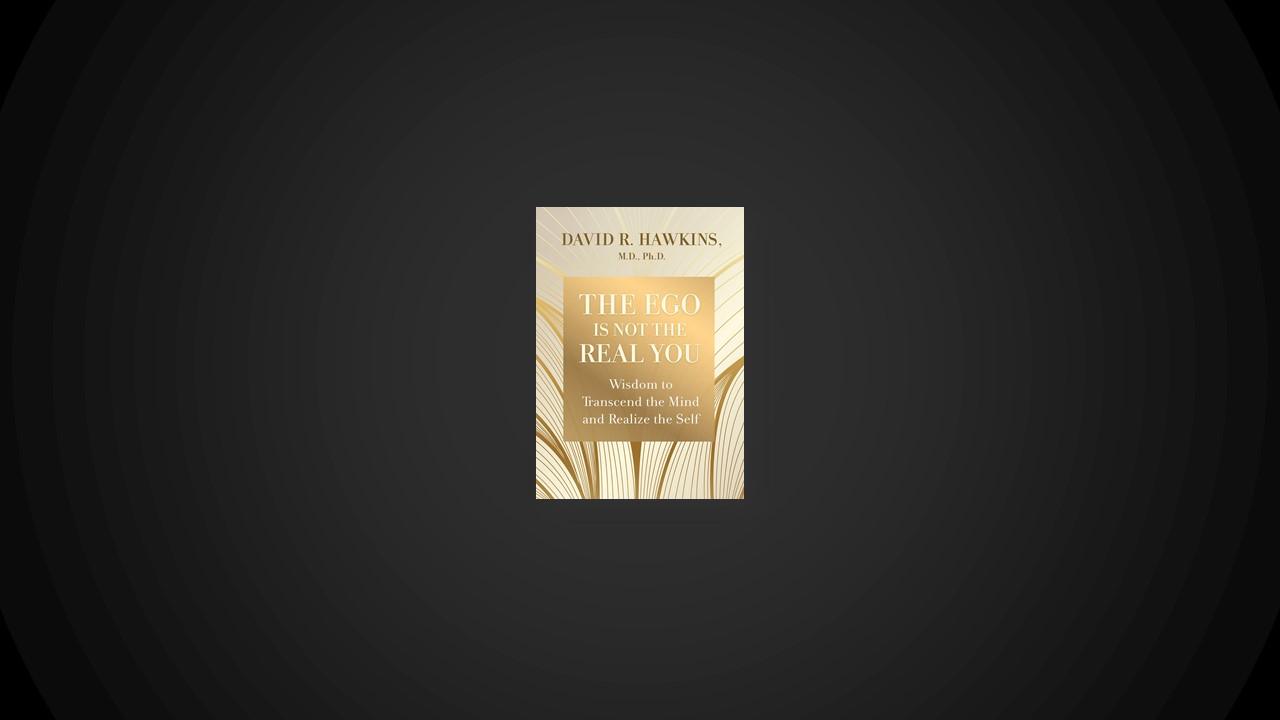The Nature of the self (Ego/Mind)
While the mind secretly believes that its survival is due to the ego, on the contrary, the person’s survival is due to the spirit that energizes the ego to accomplish important tasks. It is because of the intention of the spirit that the lower self or ego even remembers to take its vitamins. In truth, we exist and survive, not because of the ego, but in spite of it.
The world of the ego is like a house of mirrors through which the ego wanders, lost and confused, as it chases the images in one mirror after another. Human life is characterized by endless trials and errors while attempting to escape the maze. At times, for many people—and possibly for most—the world of mirrors becomes a house of horrors that gets worse and worse. The only way out of the circuitous wanderings is through the pursuit of spiritual truth.
The ego can be thought of as a set of entrenched habits of thought, which are the results of entrainment by invisible energy fields that dominate human consciousness. They become reinforced by repetition and by the consensus of society. Further reinforcement comes from language itself. To think in language is a form of self-programming. The use of the pronoun I as the subject—and therefore the implied cause of all actions—is the most serious error, and automatically creates a duality of subject and object.
The narcissistic core of the ego is aligned with being “right,” whether being “right” means being in agreement with wisdom or rejecting it as invalid. With humility, the serious searcher discovers that the mind alone, despite its education, is unable to resolve the dilemma of how to ascertain and validate truth—which would require confirmation by subjective experience as well as objective, provable criteria.
Radical truth means what is being experienced, not what one is actually thinking about it or the concepts that one is projecting onto the experience; it is not the labeling of it but what one is literally experiencing within oneself.
All negative emotions persist because of their secret payoff. When this “ego juice” is declined, thoughts tend to diminish and then disappear. The mind then tends to “go blank,” which then brings up the fear of boredom. With observation, it becomes clear that the mind is busy anticipating the future (fear); clinging to the past (regret, hatred, guilt); or savoring the past to extract pleasure via reruns. Thus, the mind becomes the focus of amusement as “doing” something.
In looking at this from the viewpoint of Truth, we can see there is no such thing as “just ego.” It would mean that there is some place where God is not. All positions represent ego, and the ego is then superimposed on that which is not ego. There has to be something larger, which is consciousness itself. To safely do spiritual work and avoid crises, it is necessary to reaffirm, look within, and discover one’s own innocence. It really is not safe to do spiritual work unless one has a glimpse of that innate naïve innocence and keeps one eye on it at all times, because that innocence is the gateway back to the Truth so one does not get lost in the swamp.
Surrendering the Self
Love is a way of being. It is the energy that radiates when the blocks to it have been surrendered. It is more than an emotion or a thought—it is a state of being. Love is what we have become through the pathway of surrender.
One is not really ruled by the mind at all. What the mind reveals is an endless stream of options, all disguised as memories, fantasies, fears, concepts, and so on. To get free of domination by the mind, it is only necessary to realize that its parade of subjects is merely an arbitrary cafeteria of selections wending their way across the screen of the mind.
Letting go greatly facilitates the power of affirmations. An affirmation is a positive statement. Its power is limited by the fact that, either consciously or unconsciously, we have multiple negative programs that are saying the very opposite thing to the affirmation. You can discover this for yourself by noticing that, as you write the affirmations, your mind comes up with, “Yeah, but . . .” It is these “Yeah, buts . . .” that limit the power of the affirmation and reduce its effectiveness. If you surrender the obstacles to the affirmation, you will notice a rapid increase in their effectiveness.
In actuality, the ego-self doesn’t have to die at all: life doesn’t come to an end; existence doesn’t cease; and no horrible, tragic fate is waiting to end life at all. Like the ego itself, the whole story is imaginary. One doesn’t have to destroy the ego or even work on it. The only simple task to be accomplished is to let go of the identification with the ego as one’s real self!
With this relinquishment of identification, the self actually goes right on walking and talking, eating and laughing—the only difference is that, like the body, it becomes “that” instead of “me” or “this.”
All that is necessary, then, is to let go of ownership, authorship, and the delusion that one invented or created this self and see that it was merely a mistake. That this is a very natural and inevitable mistake is obvious. Everyone makes it, and only a few discover the error and are willing or able to correct it.
As Buddha said, “Put no head above your own,” meaning that one’s only true guru is the Self (the Buddha nature).
The Self of the teacher and one’s own Self are one and the same. The teacher becomes a source of inspiration and information. It is the inspiration that supports the quest.
The Divinity of the Self
Spiritual commitment is energized by the alignment of the spiritual will (calibration level 850) with the attributes of Divinity, which are truth, love, compassion, wisdom, and nonpartiality. Devotion prioritizes one’s life and attracts that which is of assistance. To be a servant of God is a dedication whereby the goal takes precedence over all other positionalities, attractions, or distractions.
In the energy field of love, we are surrounded with love, and that brings gratitude. We are thankful for our life and for all the miracles of life. We are thankful for the doggies and the kitties, because they represent love. We are grateful for every act of kindness from others, their affection, caringness, and thoughtfulness.
To understand the nature of God, it is necessary only to know the nature of love itself. To truly know love is to know and understand God, and to know God is to understand love.
That which is ultimate and eternal transcends both objectivity and subjectivity and is beyond awareness. It is referred to in the ancient spiritual literature as “the Supreme Spirit.” Out of the Supreme arises all that is manifest and unmanifest; all consciousness and awareness; all existence; All That Is; either form or nonform; all that is linear and all that is nonlinear; all that arises out of creation; all possibility and actuality. The Supreme is beyond existence or nonexistence; beyond beingness or is-ness; beyond all Gods, heavens, or spiritual forms; beyond all names or definitions; beyond all divinities and spiritual denotations. It is out of the Godhead that Divinity arises, and out of the Supreme arises the Godhead.
It is not possible to arrive at truth and ignore consciousness because truth is the very product of consciousness.
That which is Reality is beyond all form and yet intrinsic to it. Let form reveal its own nature—there is no need to seek it. The actual essence of form is formlessness, as paradoxical as that may sound.


